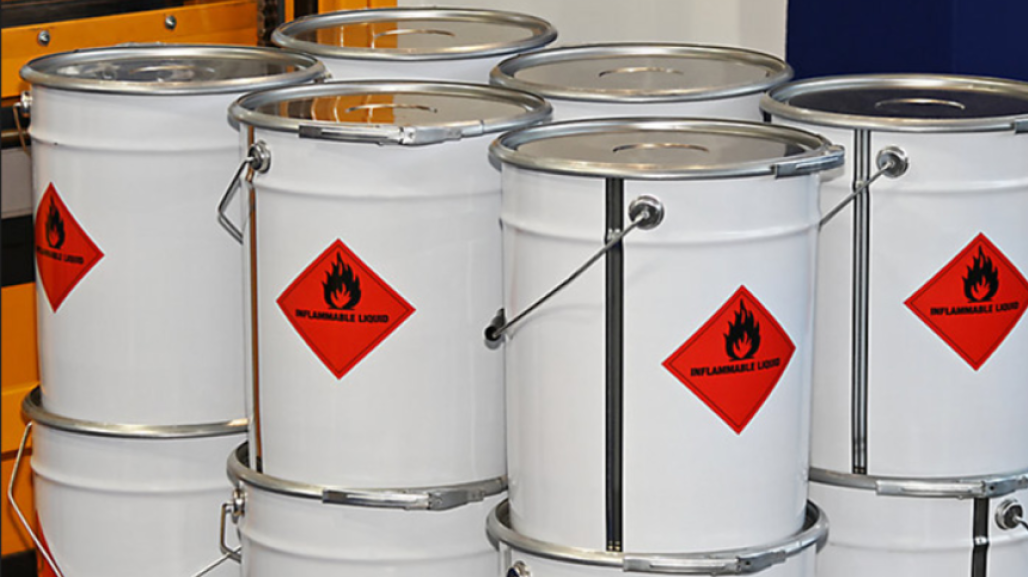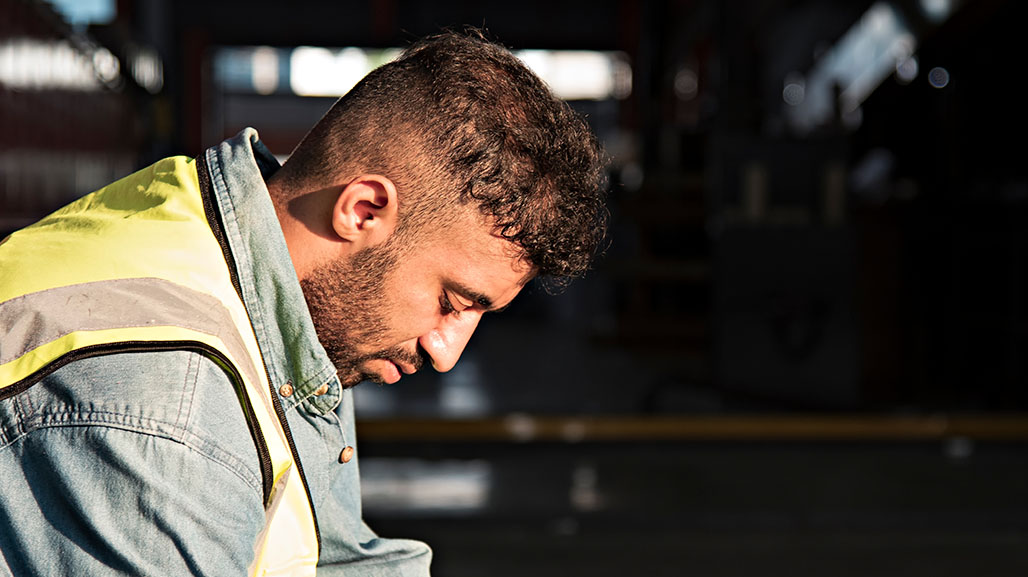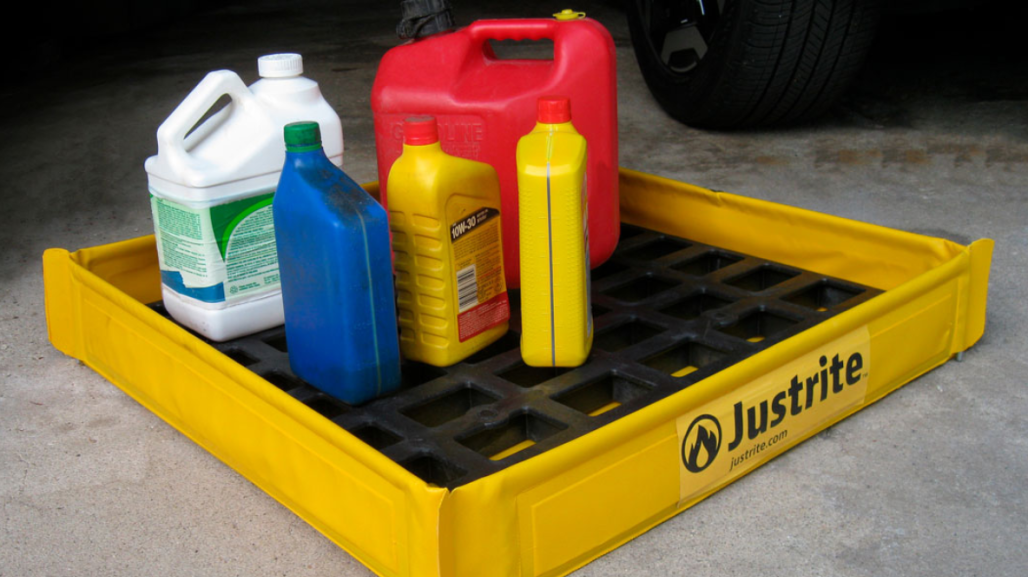Video Transcript
Narrator:
Welcome to Creating a Safer Workplace by MSC Direct featuring the web series "Nothing Stops U.S. Manufacturing. Conversations with Safety Professionals in the Field." Here's your host Anthony Testa.
Anthony Testa:
I'm Anthony Testa and welcome to another MSC episode of Nothing Stops U.S. Manufacturing. Joining me today is Kimberly-Clark's chief customer officer Andy Clement. When you think Kimberly-Clark, you think of these major power brands in the marketplace — Kleenex, Power Brand, Scott, Cottonelle, WypAll, Kimtech, KleenGuard, spans between industrial and consumer so all of our audience can relate to these products. Welcome Andy. Welcome to the show. I appreciate you taking some time out of your busy schedule. How's everything going?
Andy Clement:
It's going good Anthony, thanks for having me. Look forward to talking with you.
Testa:
So, first and foremost, Kimberly-Clark's doing both sides right, so the industrial and the consumer, and when people went virtual, meaning they went from the workplace to home, what impact did that have on Kimberly-Clark?
Clement:
Yeah, I mean obviously we saw certain categories, namely toilet tissue, that became much bigger at home because workplaces were closed, right, and we had to work with our consumer team to kind of make those shifts. Equally so on our side we had categories like wipers, skin care, hand sanitizer and safety that just exploded. That's kept us really busy at Kimberly-Clark over the past you know a few months.
Testa:
Being the chief customer officer right, how are companies turning to Kimberly-Clark today and really looking to you as that thought leader, industry leader person to really show them how to really take that step back and make a safe workplace or create a safe environment, a safe workplace for their employees?
Clement:
Yeah, we're seeing more and more big end-use manufacturing facilities coming to KC because we can implement either a national account program or in certain cases a global account program that allows them to not only leverage their spend, but to really drive some best practices around workplace hygiene and safety versus leaving it up to each location or each country to decide. It's really an opportunity to make sure all the employees are safe and they're using the right types of products to wash their hands or wipe up oil and grease and so that's been a big focus for us. Our North America national account team and our global account team has been a big area of investment for KC over the past couple years because we've seen more and more industrial end users coming to us looking to take advantage of it.
Testa:
What are the type of insights now with the heightened awareness around bacteria and virus? What are the other insights that KC is going to start bringing to market or continue to bring the market?
Clement:
Yeah, great question Anthony, and you know a lot of these insights are new, but they're more important now because people have a heightened awareness right. But for example, did you know the average work desk contains 400 times more bacteria than a toilet seat? Another one – mobile phones harbor, on average, 6300 bacteria on each phone. Another one – water fountain spigots have 19 times as much bacteria as a toilet seat and then finally the average person touches their face 522 times a day. Okay, so these facts are really getting a lot of interest these days. Our sales team is working with MSC personnel to educate folks and they're not going to change, and what we're seeing is habits are changing and a lot of these habits, whether it's to stop a second wave of covid or just to stay healthy in the future, are becoming bigger and bigger and more important to our end-use customers. And what also is important to those end-use customers is the fact that the products that KC makes that are sold through MSC andfor the most part are domestically manufactured and that gives them kind of the peace of mind of the safety of their employees and the peace of mind of buying in the USA. Even some of the stuff on masks recently where people were saying, wow, you know I'd love to have a domestic manufactured mask that's more comfortable. Those were some insights we had to say, hey we can create this. We make the filtration media, we can make these types of assets ourselves in KC manufacturing facilities. That's a really quick example of a pivot that KC has made.
Testa:
So touch a little bit on the masks, right, so give us a little bit of an insight of what type of masks, when they're going to be released, when it's going to be available to market.
Clement:
We've developed an N95 respirator that is for non-healthcare use that we are having limited production now. We will have more I would say in the fourth quarter. It's not for use in healthcare facilities, but there's a lot of folks that want to use N95 masks now in manufacturing facilities especially right? Yeah, so that's out there. We also have a general-purpose mask that we've gotten into and actually I've got the N95 mask right here. One of the cool things that we're doing with these masks is actually we have a proprietary, non-woven material as the head strap here which makes it incredibly comfortable to use. You know sometimes the masks aren't as comfortable as we'd like them to be over time and so we're really trying to build in some innovation, have a differentiated product that's made in the USA using the Kimberly-Clark brands which gives people peace of mind.
Testa:
There's a lot of debate that is around the electric hand dryers versus using towels. You know safer for the environment, uses you know less, you know it doesn't go into the landfills versus having a towel that's clean that can you know actually dry your hands. It doesn't splatter all over the place and it's just. Talk a little bit about those two and give us some, you know, some insights on your side.
Clement:
We've been talking about jet air dryers for a number of years. They're very popular overseas especially and a lot of our studies that we've educated folks on through the years have shown that you know paper towels are a more hygienic way to dry your hands. They actually reduce the amount of germs on your hands by 77% versus a hot air dryer and that's why organizations like the World Health Organization and the Mayo Clinic recommend them. Those studies have really gotten more interest I would say the past six months right because people are worried about workplace hygiene and not willing to sacrifice that in lieu of sustainability, which they may have moved to hot air dryers in the past.
Testa:
So getting out of that washroom you know how about the other areas around a manufacturing facility, like a lunch room or a break room, you know things of that nature can see have stuff for products that go in those areas?
Clement:
Yeah, definitely, I mean once again it's kind of portable towels, hand sanitizer, skin care products in those break rooms, making sure the wipers are readily available as well for cleaning and disinfecting. That could even go for use in offices too. We've seen some folks want to put those products in also and then of course you know continuing to provide PPE, especially in a manufacturing environment. It's getting used a lot more.
Testa:
But I know that KC from a towel and tissue, there's all kinds of you know recycled fiber and just give us a little bit of an insight there about the towel tissue type business and what you're doing there from a sustainability story.
Clement:
Yeah, I mean KC uses a ton of recycled fiber so all of those uh all those pieces of paper that you uh throw in your trash can at home or at work typically go into our paper making process, and about off the top my head 80 to 90 percent of the fiber we use is all recycled paper.
Testa:
An end user right, so they're using their product, how do they dispose of it properly, how do they prevent that cross-contamination of product when they start taking product off?
Clement:
Yeah, I mean and the other thing that a lot of people are asking about is what about sustainability? I'm using more of these products, gloves, apparel, masks, what do I do with these things because it could be bad for the environment and, Anthony, as you know we've had a program now for seven or eight years called Right Cycle which is a way for manufacturing facilities to take their gloves and apparel and actually recycle the products so they do not go to the landfill. And just over the past seven or eight years I think about 1100 metric tons of PPE has been diverted from going into the landfill and I know just as our teams have worked together the past 90 days, we've had a lot of renewed interest especially in that glove recycling program as people are using more and more of those.
Testa:
Right. You take that from you bring that back to a personal use right. So when this first started, you used to go to the grocery store or you know just go out and then you would look across a parking lot and it would be littered with gloves. It was just ridiculous. Yeah, so I'm really happy you know to remind everybody that's a big piece.That Right Cycle program is a phenomenal program. How do we get more information about stuff like that?
Clement:
I mean that would all be available on kcprofessional.com, our website, and then of course you can reach out to your MSC rep who'd get in touch with the KC rep and we'd love to do a virtual call or discussion with any customer that might be interested.
Testa:
Love it, love it Andy. I want to thank you very much for joining me today for this interview. It was phenomenal and everyone thank you very much for joining us. Stay tuned or next time join us for the MSC series "Nothing Stops U.S. Manufacturing." Thank you.
Narrator:
Follow us at mscdirect.com for future episodes and more information on operating in our new normal.


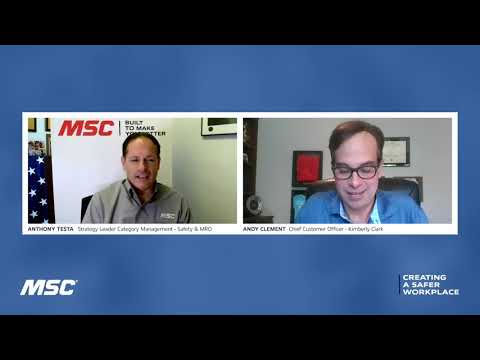

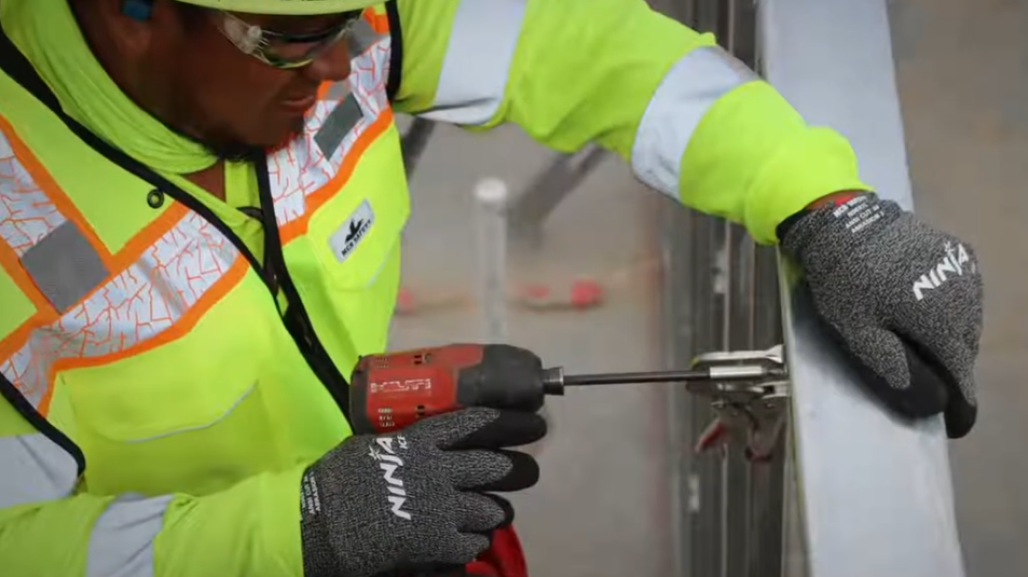
![Why the Cheapest Safety Gloves Aren’t Always the Smartest [Infographic]](https://images.ctfassets.net/5j4ln2up7bt7/2gVEyRZylkBIlvTDtTRRc7/dde0c00e4846d6a88d56a7a68f09332a/mcr-PD5931_action4571-thumb.jpg)
